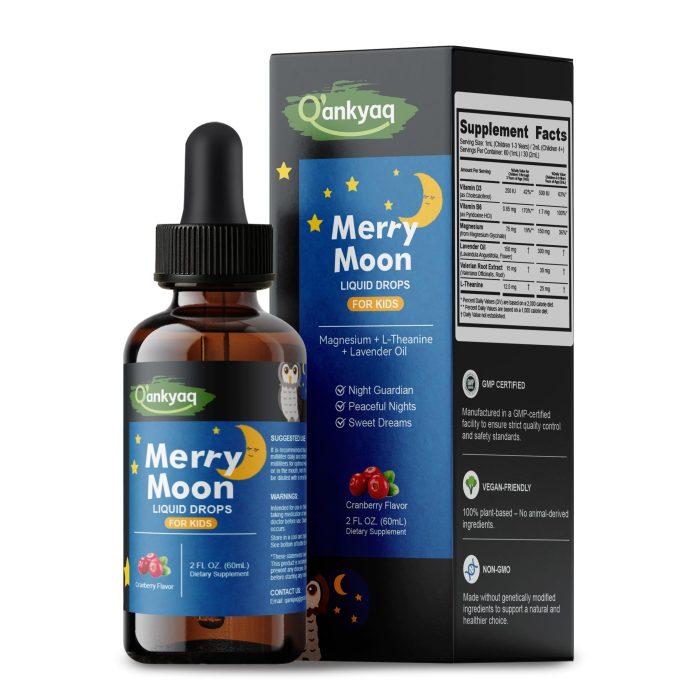What Exactly Is Magnesium Taurate? Breaking Down the Basics
Magnesium taurate is a unique compound made by combining magnesium, an essential mineral, with taurine, an amino acid that supports heart and brain health. Magnesium plays a crucial role in muscle function, nerve signaling, and energy production, while taurine acts as a natural antioxidant and helps regulate neurotransmitters.
Why does this pairing matter? When magnesium bonds with taurine, it enhances the mineral’s absorption and bioavailability, making it easier for your body to use. Plus, taurine itself supports cardiovascular health and helps calm the nervous system.
This duo offers dual benefits: magnesium promotes muscle relaxation, easing cramps and tension, while taurine helps regulate calming brain chemicals. Together, they create a powerful combo for both physical and mental balance—supporting everything from restful sleep to steady heart rhythms.
The Core Functions: What Does Magnesium Taurate Do in the Body?
Magnesium taurate plays several important roles once it’s inside your body. First, it supports energy production by helping enzymes convert food into usable fuel. This is key for keeping your nerves firing properly and muscles working smoothly. Taurine, the other half of the combo, promotes a calm state in the nervous system. It helps regulate neurotransmitters that reduce anxiety and support mental focus.
On top of that, magnesium itself helps stabilize heart rhythms, making magnesium taurate especially valuable for cardiovascular health. Compared to other magnesium forms, magnesium taurate has higher bioavailability, meaning your body absorbs and uses it more efficiently. This makes it a smart pick if you want to quickly address magnesium deficiency and benefit from taurine’s added calming effects.
Proven Benefits: How Magnesium Taurate Supports Heart Health and Beyond

Magnesium taurate shines when it comes to heart health and much more. Here’s a quick look at what it can do:
| Benefit | How It Helps |
|---|---|
| Lowers blood pressure | Magnesium relaxes blood vessels, while taurine supports heart rhythm, helping reduce hypertension. |
| Protects against toxins | Acts as an antioxidant, shielding cells from damage caused by free radicals and harmful substances. |
| Improves blood sugar control | Enhances insulin sensitivity, helping manage blood glucose levels. |
| Calms nervous system | Eases anxiety and supports better sleep by calming neurotransmitters. |
| Boosts energy & recovery | Supports muscle function and exercise tolerance, speeding recovery after workouts. |
| Emerging benefits | Shows promise for eye health, brain function, and anti-aging effects. |
Magnesium taurate often works better than other magnesium types like glycinate because of its high bioavailability—a fancy way of saying your body absorbs and uses it more efficiently. It’s a great choice if you want natural support for blood pressure, anxiety, or muscle recovery.
If you’re interested in optimizing your supplement routine, pairing magnesium taurate with other targeted nutrients can boost results. For example, combining it with amino acid supplements supports overall metabolic health. You can find some well-researched options on essential amino acid powders for optimal health here.
Overall, magnesium taurate isn’t just for your heart—it’s a versatile supplement that supports several body systems effectively.
Who Stands to Gain the Most? Ideal Candidates for Magnesium Taurate

Magnesium taurate is especially helpful for people facing certain health challenges. If you have hypertension (high blood pressure) or are dealing with prediabetes, this supplement may support better heart and metabolic health. Those with magnesium deficiencies also stand to benefit, as this form is highly bioavailable and easier for the body to absorb compared to some other magnesium types.
Busy professionals and athletes often experience muscle tightness, stress, or insomnia—areas where magnesium taurate’s muscle relaxation and calming effects shine. Women going through hormonal transitions, like menopause, may also find relief from mood swings and sleep disturbances with regular use.
Common signs of magnesium deficiency include muscle cramps, fatigue, anxiety, and irregular heartbeat. If these symptoms show up, or if you belong to a risk group, it’s wise to get your serum magnesium levels tested. Knowing your status can help you decide if magnesium taurate supplements could improve your overall wellness.
For more on how supplements support different health aspects, check out our insights on the key benefits of lysine supplementation.
How to Incorporate Magnesium Taurate: Dosage, Timing, and Best Practices
When adding magnesium taurate to your routine, the recommended daily intake typically ranges from 100 to 400 mg of elemental magnesium, depending on your needs and health goals. It’s often best to split your dose into two smaller amounts—one in the morning and one in the evening—to improve absorption and reduce the chance of digestive upset.
For those focused on better sleep or calming anxiety, taking magnesium taurate 30 to 60 minutes before bedtime can help relax muscles and soothe the nervous system. If you’re looking to boost workout support and muscle recovery, try taking it about an hour before exercise to help with muscle relaxation and steady energy.
Magnesium taurate supplements come in various forms, including capsules and gummies, which can suit different preferences. To maximize benefits, consider stacking magnesium taurate with complementary nutrients like vitamin B6, which helps magnesium absorption, or taurine-rich foods to enhance antioxidant effects. For a well-rounded approach to supplementation, this fits nicely with a balanced nutrient plan. If you want to explore natural wellness compounds that pair well with magnesium, a helpful guide on unlocking the potential of natural wellness compounds offers useful insights.
Navigating the Choices: Selecting a High-Quality Magnesium Taurate Supplement

When picking a magnesium taurate supplement, quality matters a lot. Look for purity markers like third-party testing to confirm what’s on the label matches the bottle. Certifications like vegan and non-GMO ensure you’re getting a cleaner, more ethically produced product, which is important for many U.S. customers today.
Not all brands are the same. Trusted companies usually use the chelated form of magnesium taurine, which boosts absorption and reduces stomach upset—this is a big advantage compared to generic magnesium supplements. Avoid products with unnecessary fillers, artificial colors, or binders.
Be cautious of red flags such as vague ingredient lists, synthetic additives, or claims that sound too good to be true. Sustainability is also worth considering—brands investing in responsible sourcing and packaging align better with current eco-conscious consumer values.
For deeper insight into amino acid supplements and how they’re made, check out this detailed guide on how amino acid supplements are made. This will help you understand more about the quality behind your magnesium taurate source.
Potential Drawbacks: Side Effects, Interactions, and Precautions
Magnesium taurate is generally safe for most people, but like any supplement, it can have mild side effects. Some users might experience stomach upset, diarrhea, or nausea, especially if taken in high doses. To minimize this, start with a lower dose and take it with food.
There are also some possible interactions to keep in mind. Magnesium can affect how certain medications work, including antibiotics, blood pressure drugs, and muscle relaxants. If you’re on medication, check with your healthcare provider before adding magnesium taurate to your routine.
Safety limits matter, too. The daily magnesium intake from all sources should generally stay below 350 mg unless supervised by a doctor, as too much magnesium could cause an irregular heartbeat or low blood pressure, especially in people with kidney issues. Pregnant or breastfeeding women should also consult their doctor first.
Overall, magnesium taurate is a well-tolerated supplement, but it’s important to use it thoughtfully and pay attention to your body’s signals.
Real Stories and Science: Does Magnesium Taurate Deliver?
Many people who try magnesium taurate report noticeable improvements in their heart health and overall calmness. Users often mention reduced feelings of anxiety, better sleep quality, and more stable energy throughout the day. Athletes and busy professionals appreciate how it supports muscle recovery and steady nerves without the jittery side effects of some supplements.
On the scientific front, research backs up these experiences. Studies consistently show magnesium taurate’s ability to lower blood pressure, improve vascular function, and protect against oxidative stress in heart cells. Its combination of magnesium and taurine works synergistically to stabilize heart rhythms and support healthy circulation, making it a preferred choice for cardiovascular magnesium support.
Long-term, magnesium taurate shows promise in improving metabolic health as well. It may help with blood sugar regulation and insulin sensitivity, which is great news for those managing prediabetes or metabolic syndrome. While more research is ongoing, this magnesium form’s dual benefits position it as an excellent option for both heart and overall health.
For those interested in combining magnesium taurate with amino acids to boost exercise and recovery, check out this guide on essential amino acids supplements to maximize your routine naturally.









